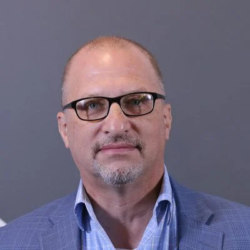Public Services vs. Public Pensions
When the governor’s pension adviser, David Crane, comments on a pension issue, it’s wise to listen to what he has to say. Crane has long been sounding the alarm about out-of-control public-sector pensions, and his testimony in the Senate regarding a failed pension reform effort captures the problem more succinctly than anything else I have read. Crane emailed me recently after my column pointing to Moody’s downgrading of San Francisco’s debt rating after voters there rejected a pension reform measure. I was encouraged that the financial markets were responding to the lack of pension reform, but Crane does not believe that the markets can rein in the problem. I sat down with him today at his Capitol office to discuss the issue.
As Crane explained, financial markets are a lagging indicator because debt is so senior that there’s virtually no chance the state will default on it. He makes that point most compellingly in the testimony linked above. Basically, the state first pays Prop. 98 dollars (education funding), then debt service and pension obligations. There’s plenty of money to cover the debt service, in other words. That means that all the cuts will have to come out of human services, parks and recreation and other budgets.
So while, as I argued, the financial markets might send some warning signs through downgrading, etc., Crane’s point is a better one — the markets aren’t too worried about it. Their actions won’t fix the problem. Significant cuts are coming down the pike unless pension and health care costs for public employees are controlled. “Services will be cut,” he told me, “because this debt will be paid off.”
He pins the nation’s pension debt at nearly $4 trillion and that doesn’t include retiree health benefits. That money will come from state and local governments, despite efforts by unions to resist even the modest reductions in their gold-plated guaranteed pension plans. The party is almost over.
What to do?
The government needs to reform pensions for new hires to keep the problem from growing, which is what reformers have focused on with only limited success. He agrees that at some point government agencies are going to have to do what private companies have done — make good on existing pensions for current employees up to the day of reform, but then to start them on a new lower benefit plan. Right now, unions and Democratic officials claim that the courts won’t allow any such thing. They say that once a benefit increase is approved that it is a binding contract for the next 30 years — through the entire career of the employees who receive the enhanced benefits. Crane says that case law is not clear on that matter.
Indeed, unless benefits are changed for current employees, programs will be cut and dramatically so. This is the sensible answer. If a government employee is receiving a “3 percent at 50″ pension benefit, then she should have her pension plan reduced to a lower defined-benefit plan or preferably to a defined-contribution plan like those received by those people working in the private sector. Nothing should change retroactively (unlike their benefits, which went up retroactively). The employee should be made whole up until today, but tomorrow he should be on a lower-tier plan.
Crane loves the idea floated by Rep. Devin Nunes and other members of Congress to require truth in accounting by local government regarding their pension debts. “It’s a brilliant tactic,” he said. Crane believes that reform will come once the truth comes out about the real debt. He believes that eventually the federal government might have to bail out states from their pension debts but that the feds will impose severe conditions for them. He thinks that other states will wrestle with this before California, which is innovative in many areas of life but certainly not in the area of governmental reform.
Crane used to think that government officials were ignorant about pension debt, but he has learned that “some people understand it very well” — in other words, some officials have been quite clever at manipulating the system to their benefit. This will have to end soon. But, bottom line, he says that reform won’t come from the downgrading of debt or other discipline from financial markets.
About the author: Steven Greenhut is the editor-in-chief of Cal Watchdog, an independent, Sacramento-based journalism venture providing original investigative reports and news stories covering California state government.. Greenhut was deputy editor and columnist for The Orange County Register for 11 years. He is author of the new book, “Plunder! How Public Employee Unions are Raiding Treasuries, Controlling Our Lives and Bankrupting the Nation.”
